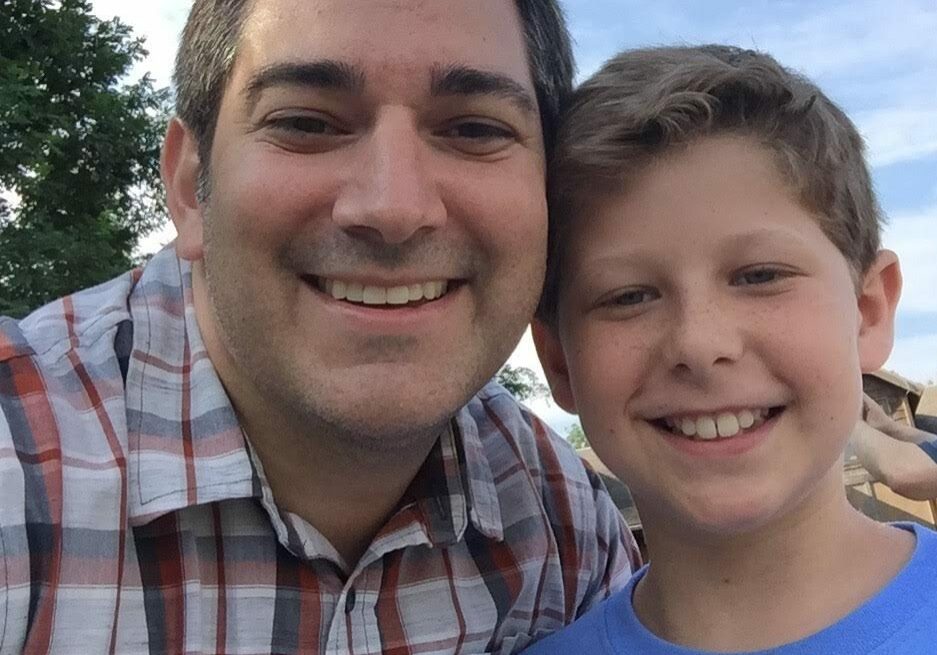From Forbidden to Mitzvah: The Jewish Perspective on Organ Donation

When Jeffrey Arnowitz was “a newly minted rabbi,” as he calls it, he had a congregant who was waiting for a heart. Rabbi Arnowitz visited this congregant, Michael, as he was in and out of hospitals, having heart attacks so frequently that he began to refer to them nonchalantly as “episodes.”
When a heart finally became available, Rabbi Arnowitz rushed to the hospital to pray with the family during the surgery and the recovery period afterwards. Michael’s experience very quickly proved to the rabbi that a new heart can be truly life changing—within a few weeks, Rabbi Arnowitz was surprised to see his friend living a life he hadn’t been able to live in decades. “I found the whole thing very moving and very emotional,” he remembers. “It really gave me a practical understanding of the importance of organ donation—a hands-on training.”
But over the course of the next 14 years, Rabbi Arnowitz learned that, while the Jewish faith has moved towards not only accepting but encouraging organ donation, the Jewish community is largely unaware of their faith leaders’ position.
It’s understandable, he says, since for a long time organ donation was frowned upon by Jewish leaders. The body has always been considered a sacred vessel for the soul, but contemporary leaders now see organ donation not as a desecration of that vessel but as a way to give life to another human being. And that, says Rabbi Arnowitz, is the most sacred Jewish tenet of all.
The Jewish perspective on organ donation has done a 180 and, as 3,000 year old traditions confront a modern world, it’s not just an allowable practice. It’s a mitzvah—a positive work that’s so necessary as to be mandatory.
“We’re positioned to bring a blessing to the family and to someone on the list who needs an organ—at the very least, we can give it some grace and blessing in the form of helping facilitate and helping care for the family.”
Teaching the teachers
Last month, Rabbi Arnowitz, along with other faith leaders from different traditions, spoke at the Life, Death and Donations faith summit, sponsored by Donate Life Virginia, LifeNet Health, Bridge to Life, and the National and Virginia Council of Churches. He participated in a panel in order to give other leaders the chance to ask important questions and in the process, become better advocates for organ donation.
The discussion veered mostly towards the practical: What do you do if the family of your congregant doesn’t know if he or she wanted to be a donor? How do you help the family? How do you help the person?
“We really talked about what an integral person the faith leader is in a confusing moment in the life of the family,” says Rabbi Arnowitz of his experiences at the Virginia Beach summit. “We’re positioned to bring a blessing to the family and to someone on the list who needs an organ—at the very least, we can give it some grace and blessing in the form of helping facilitate and helping care for the family.”
“It’s my responsibility to make sure that blessings are being shared. Everyone deserves equal access to this miraculous thing that we’re able to be a part of.”
Rabbi Arnowitz left the summit with a new perspective on his own mission. A talk given by Dr. Velma Scantlebury, an African American transplant surgeon who opened the rabbi’s eyes to the disparities in organ donation caused by race and privilege. He began to recognize that his own surety that racism or bias didn’t exist in his own organization was on the naive side. “Under the surface, there are a lot of factors that make (a declaration of fairness) less true: access to healthcare, diabetes, drinking,” he explains. “It’s my responsibility to make sure that blessings are being shared. Everyone deserves equal access to this miraculous thing that we’re able to be a part of.”
Looking forward to the Donor Sabbath
As the Donor Sabbath approaches, Rabbi Arnowitz and his congregation at Beth El share an exploration of Judaism’s perspectives on the act of being a donor. “It’s such a sacred act in our faith,” he says. “And it gives us a chance to take an abstract and hard to understand concept and break it down to an ultimate righteous act—giving life.”
During this day of speakers from all sides of the issue, the rabbi finds himself doing a lot of talking in the congregation about end of life planning. He sometimes is surprised by how much superstition and misunderstanding still exist, but he relishes the opportunity to get his congregation to hear from a donor family or an organ recipient and understand how organ donation impacts lives.
“It’s a medical miracle, a miracle of creation, and one we’re so privileged to experience.”
The gratefulness of the recipients and the hopefulness of the donor families reminds the rabbi of his friend Michael, who was kept alive by wires and tubes until someone else gave him the best possible gift. And, Michael was reborn in a way. “It’s a medical miracle, a miracle of creation, and one we’re so privileged to experience,” says Rabbi Arnowitz.
